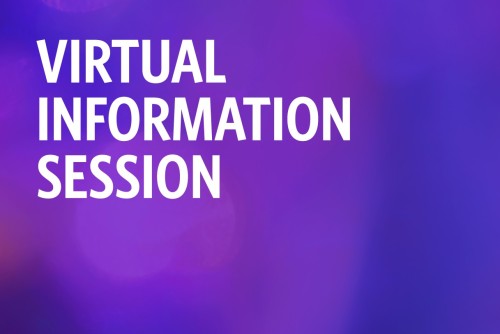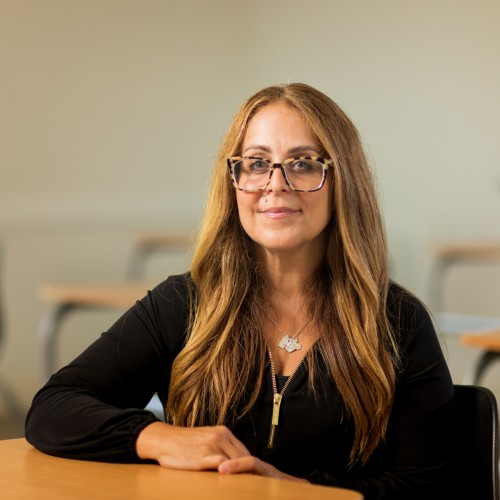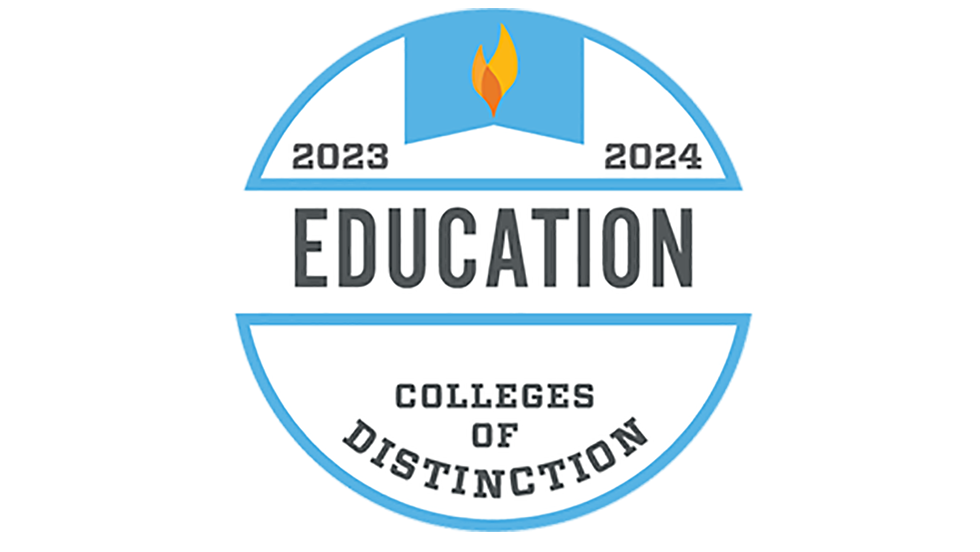Master of Education (M.Ed.) in Justice & Anti-Discrimination in Education
Stonehill's Master of Education (M.Ed.) with a specialization in Justice & Anti-Discrimination in Education (JADE) prepares educators who keep social justice, anti-discrimination and democratic education at the center of their practice.
Fully online and hybrid options available.
Upcoming Application Deadlines
- Summer Semester: May 1, 2026
- Fall Semester: August 1, 2026
- Spring Semester: January 1, 2027
Earn Your Master's in Education in Justice & Anti-Discrimination in Education (JADE)
The M.Ed. with a specialization in Justice & Anti-Discrimination in Education (JADE) prepares teachers to be leaders and critical thinkers. Schools today are complex and diverse communities — reflecting a landscape rich with individual differences. Educators in our program are prepared using a unique combination of theoretical and practical experiences. This approach fosters the skills educators need to respond to the realities, demands and challenges of educational spaces while keeping a focus on equity, social justice, anti-discrimination and accessibility.
In this program, students will:
- explore educational equity, justice and intersectionality
- identify systems that perpetuate oppression and inequity in education settings inside and outside of schools
- develop leadership skills to help promote school equity
All students take five core inclusive education courses as well as the coursework for their community education specialization. For the JADE specialization, courses prepare educators to promote justice in educational settings and recognize the inherent dignity of each person. Our curriculum keeps justice central to how we prepare educators, using anti-discrimination as a critical lens for their work.
This program can be completed fully online or with a mix of in-person and online courses.
Why Graduate Teacher Education at Stonehill
- Focus on educational equity and diversity helps better prepare educators for the modern classroom
- A core of foundational courses ensures our graduates gain the skills to teach all students
- Faculty with well-established expertise in field
- Experiential learning via research, partnership and community opportunities
- Specialized student support framework guides students through program requirements and career preparation
Upcoming Graduate & Professional Studies Events
-
Virtual Information Sessions
Join us for a virtual information session or drop-in session to learn more about our master’s degree and certificate programs.
-
Educator Licensure Information Sessions
Attend an Educator Licensure Information Session and get clear guidance on how to become a licensed educator. Whether you're exploring your options or have started the process, this session breaks down everything you need to know, including traditional and alternative pathways.
-
Graduate & Professional Studies Open House
Register for our Graduate & Professional Studies Open House on March 21! This event will provide a high-level introduction to our graduate degree and certificate programs.
-
Teacherpalooza: A Teacher Appreciation Event
Join us Wednesday, June 17, 2026, for Teacherpalooza, a teacher appreciation event hosted by Stonehill Graduate Teacher Education to thank educators for their hard work.
Sample Courses
Gender Identity, Expression & Sexuality in Schools
Race, Religion, Culture & Language
A Flexible M.Ed. Program Built to Fit Your Life
There are a variety of ways to pursue your degree, including:
- Part- or full-time
- On- or off-campus
- Late afternoon, evening and weekend courses
- Fully online and hybrid options
Master's students are required to complete 30 to 36 credits.
Studying Education at Stonehill
Stonehill College's graduate teacher education programs prepare educators to lead inclusive learning environments. The College offers master's degree, teacher licensure, community education and graduate certificate program options.
Schools today must strive to be inclusive environments, and educators in our program are prepared to be leaders in creating equitable spaces where difference is valued.
Graduate Teacher Education at Stonehill
Stonehill College's graduate teacher education programs aim to prepare knowledgeable, reflective, caring and flexible educators who embrace learning, scholarship, community and advocacy in their work. Social justice and democratic education are at the center of our work and underpins all programs, courses and experiences. We believe education can disrupt systems and processes that perpetuate injustice and inequity and embrace diversity and individuality as strengths.
We advance our mission by modeling the creation of democratic spaces in the graduate classroom that reflect equitable, accessible and inclusive learning environments where students' voices and perspectives help to shape the construction and the provision of their learning.
Three tenets guide our program philosophy:
- Social justice education
- Democratic education
- Anti-oppressive education
Graduate Teacher Education Program Outcomes
Our graduates
- Foster care, connection and community with students, colleagues and families
- Promote inclusivity, diversity and equity in educational spaces
- Work to disrupt systems that perpetuate oppression and inequity
- Embrace teaching practices that foster social justice and democracy
- Lead by making education accessible for all learners
- Elevate student voices and perspectives in education
- Act purposefully to continue to learn and contribute to the profession
Rigorous Academics and the Support to Succeed
Stonehill’s graduate teacher education programs recognize the challenges graduate students face in prioritizing work, family, personal and graduate school commitments. Our Graduate Student Support, Access and Success (SSAS) Framework is designed to support students’ success from program start to finish.
Specifically, this approach provides:
- A proactive vs. reactive framework for supporting graduate students’ variable needs within their program
- Clear benchmarks for assessment of candidate readiness
From the admission process to graduation, students have a clear understanding of both expectations and the support available to help them achieve their goals.
Education Department earns endorsement for undergraduate programs
Contact Information
Graduate & Professional Studies Admission assists students as they explore graduate and professional opportunities offered at Stonehill College.
Meet the Director of Graduate Teacher Education






